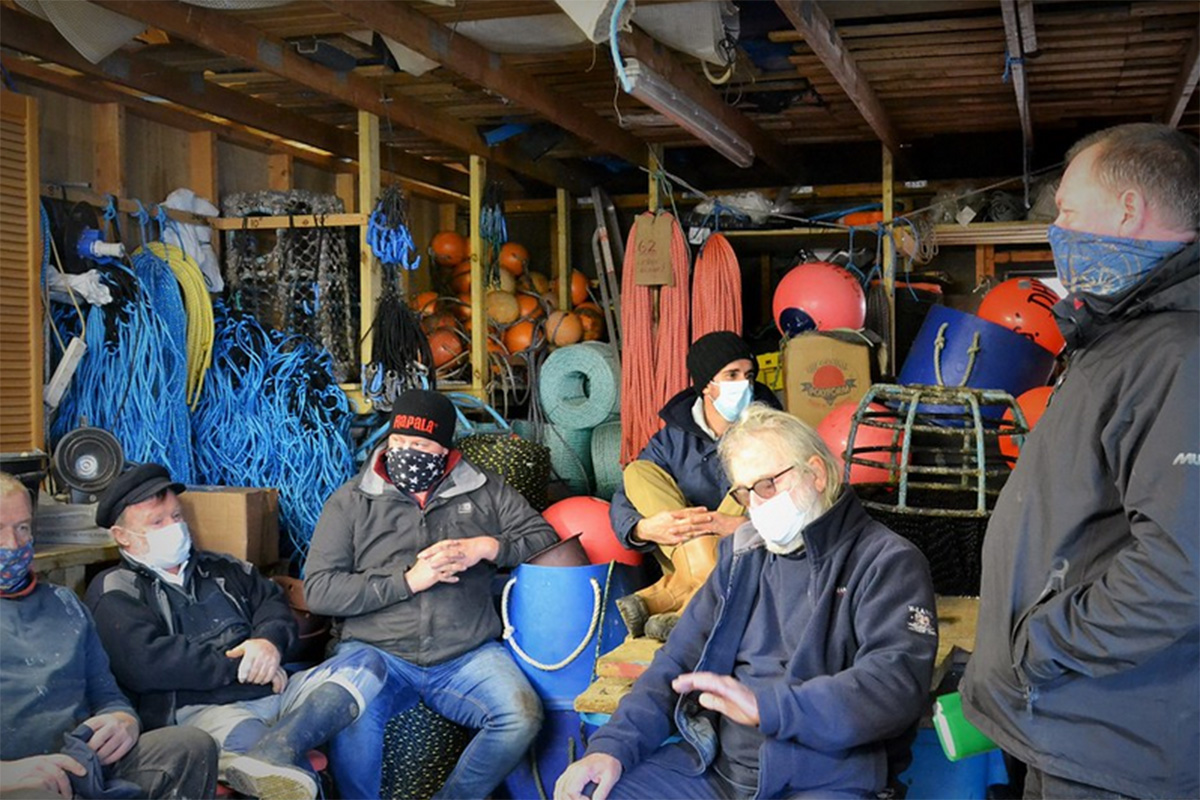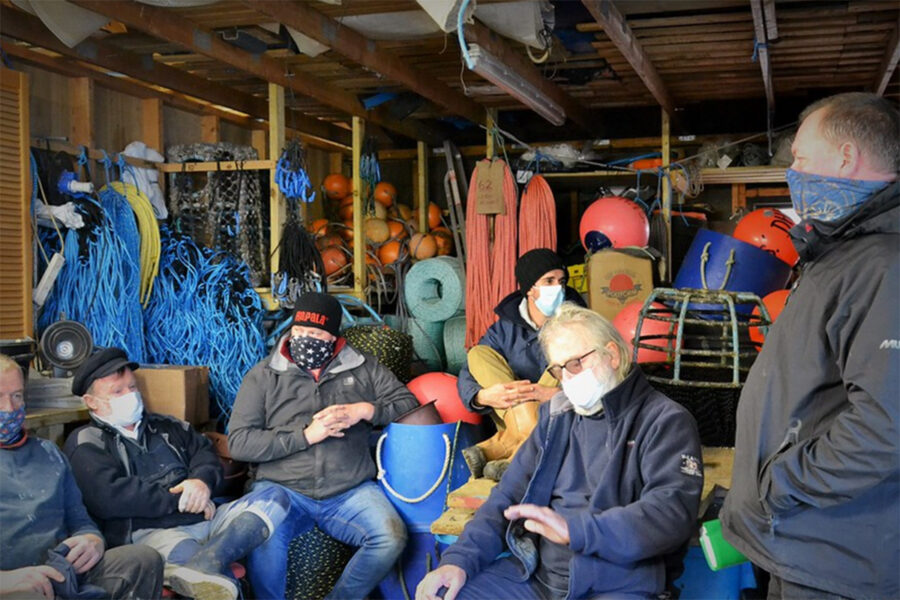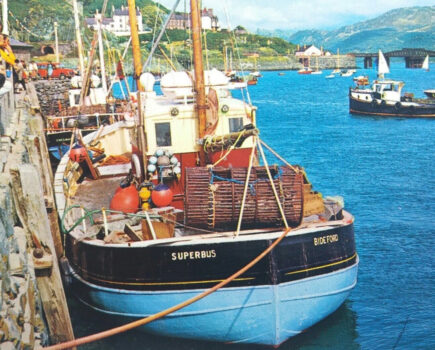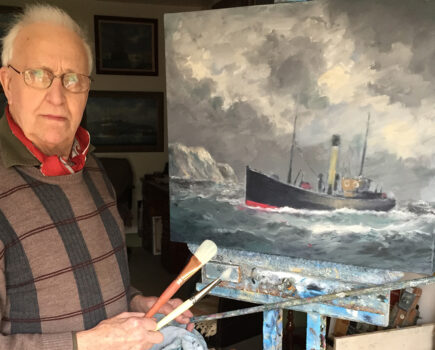No-one will be surprised to find that people might not have finished reading the proposed Crab and Lobster Fisheries Management Plan (FMP). Released over the summer, one of the busiest times in the fishing year, and consisting of what feels like a million complicated and technical documents, it was unlikely to get the attention it deserves – and it does deserve our attention.
For too long, the crab and lobster fishing sector has been left floundering, left behind in a world where science and policy has concentrated on quota stocks, but times are changing – and with that change comes paperwork, which needs to be read and commented upon – and there’s a lot of it.
Many of you will have already had the opportunity to go to one of Defra’s new drop-in sessions, where staff have been out and about to talk – and listen – to fishing stakeholders. This is a new approach for them, and one that was asked for by members of the Crab Management Group (CMG) – a group of people who have been working together to try to hash out the very basics of what sustainable, profitable management of crab and lobster stocks could look like. The suggestions from those folks have been fed into Defra, who
have come back with this FMP document, which in some cases is not quite what was expected.
It is difficult to form a full opinion on the Crab and Lobster FMP whilst heads are swimming from the sheer amount of information included – but if you only have time to think about one part of it, then the part to think about and respond to is the ‘early interventions’ that are proposed, as they form the first steps in managing crab and lobster fishing activity.
For the South Devon and Channel Shellfishermen, who represent everything from 6m beach boats to those 20m-plus crabbers fishing offshore, getting to a consensus can be tough, but overall, some of the proposed early interventions are welcome.
Our members have been asking for a prohibition on the landing and sale of crab which has recently cast its shell for many years, because overall, our members are keen on the idea of recently moulted crab being returned to the sea, to maintain a breeding stock, but also so that when it is next caught, it can attract a better price.
The proposal to increase the MCRS of lobster and crawfish to 90mm and 110mm is something that will not affect all of our members, as those sizes are the same as fished in the inshore region – and parity of regulation is something that our membership is generally in support of. The problems come for us when considering the proposed pilot projects in the Western English Channel, and the proposal to prioritise the understanding of recreational catch impacts.
The idea of pilot projects is not something that members of the CMG had opportunity to discuss in detail, so the proposals in the FMP came as a bit of a surprise. Being linked to the Cefas suggestion of ‘3S management’ – by size, sex and season – but with little information contained within the proposals, this has caused some worry across the region.
Increases in crab MCRS is something that our members are interested in discussing, in the main part because it seems incomprehensible that there are different sizes applied depending on where fishing occurs, despite it being the same stock.
On seasonality: crab seasonality is changing, and those fishermen who have been in the trade their entire lives are reporting that crab catches are out of pattern, so there are many questions over how seasonal management could be applied and if it could even work, or whether it would just move effort out of the region and into others. We consider that this needs significant discussion with as many operators as possible before considering progressing it.

Salcombe fishermen at an informal meeting as Covid regulations started to be lifted at the end of 2021. Members of the association have been actively involved in developing plans to manage and sustain their fisheries for over a generation. (Photo: South Devon and Channel Shellfishermen)
Management by sex – as is done in some parts of the United States, with a prohibition on the landing of females – could decimate our fishery, in which catches of female crab are dominant, and so even the possible suggestion of this has met with a strong reaction. Our members are also confused by the suggestion of piloting in the Western English Channel, when the FMP makes explicit mention of the links between crab stocks in the East Channel and those in the West.
Our membership also finds it difficult to understand why Defra has proposed understanding recreational fishing impacts on stocks as a priority. It is understood that, of course, all fishing will have impacts on stocks, but our membership considers that there are other actions that should have taken precedence at this time.
We are still suggesting at least a temporary pause on latent licences in the over-10m sector being able to rejoin the fishery, as it makes no sense to devise management that will protect and enhance stocks whilst fishing for crab is still basically open-access.
Overall, the comments from our fleet are related to disappointment that the first iteration of the FMP does not go far enough, fast enough. Whilst we recognise that the FMPs are a step in the right direction, there are concerns over the timelines for implementation and review, and concerns over resourcing of the many different data requirements that will be needed to further devise and implement management measures.
The take-home from us is: “It is a start, but we still have questions.”
This article was written by Beshlie Pool, Executive officer of South Devon and Channel Shellfishermen
For more up-to-date and in-depth reports on the UK and Irish commercial fishing sector, subscribe to Fishing News here or buy the latest single issue for just £3.30 here.
Sign up for Fishing News’ FREE e-newsletter here.







